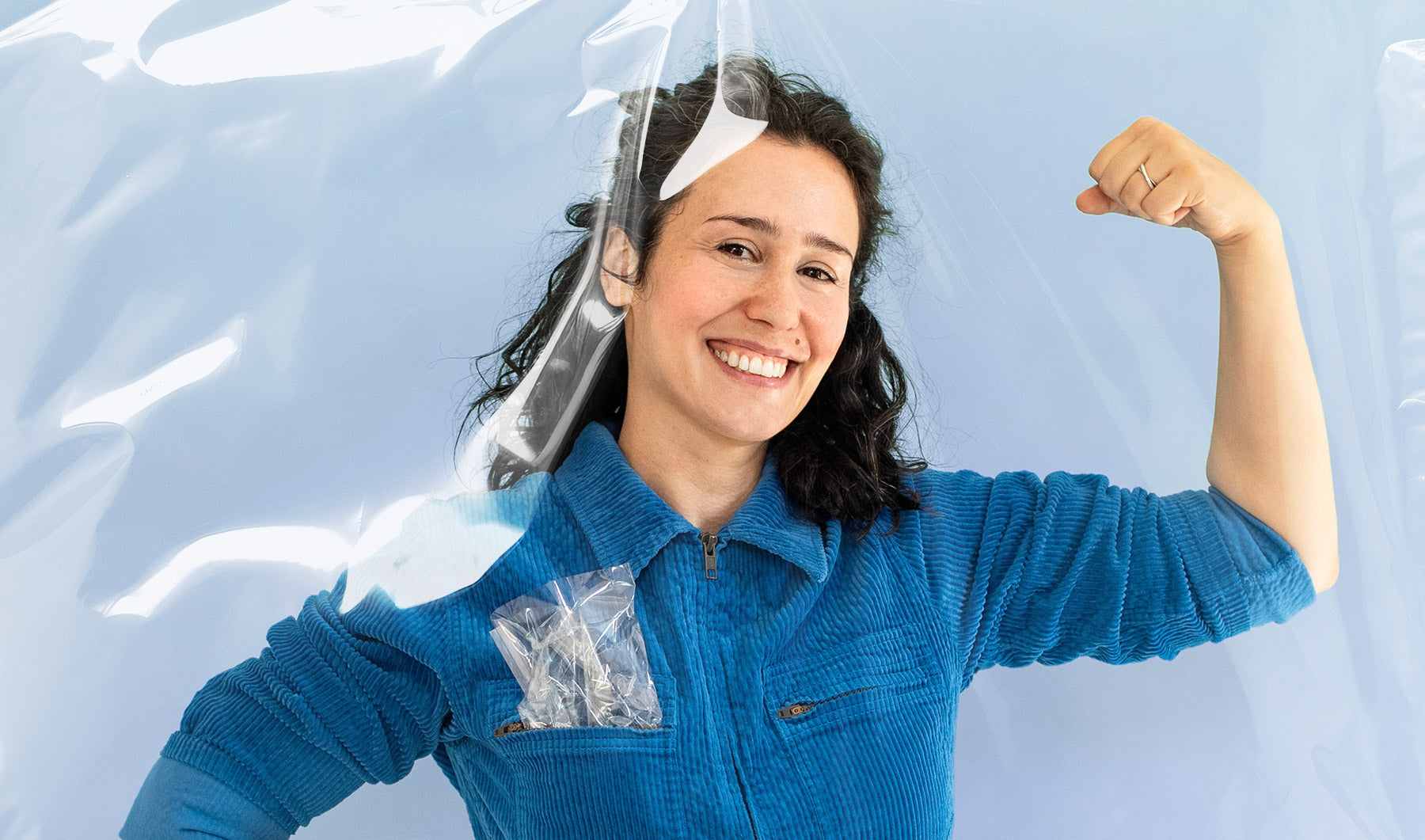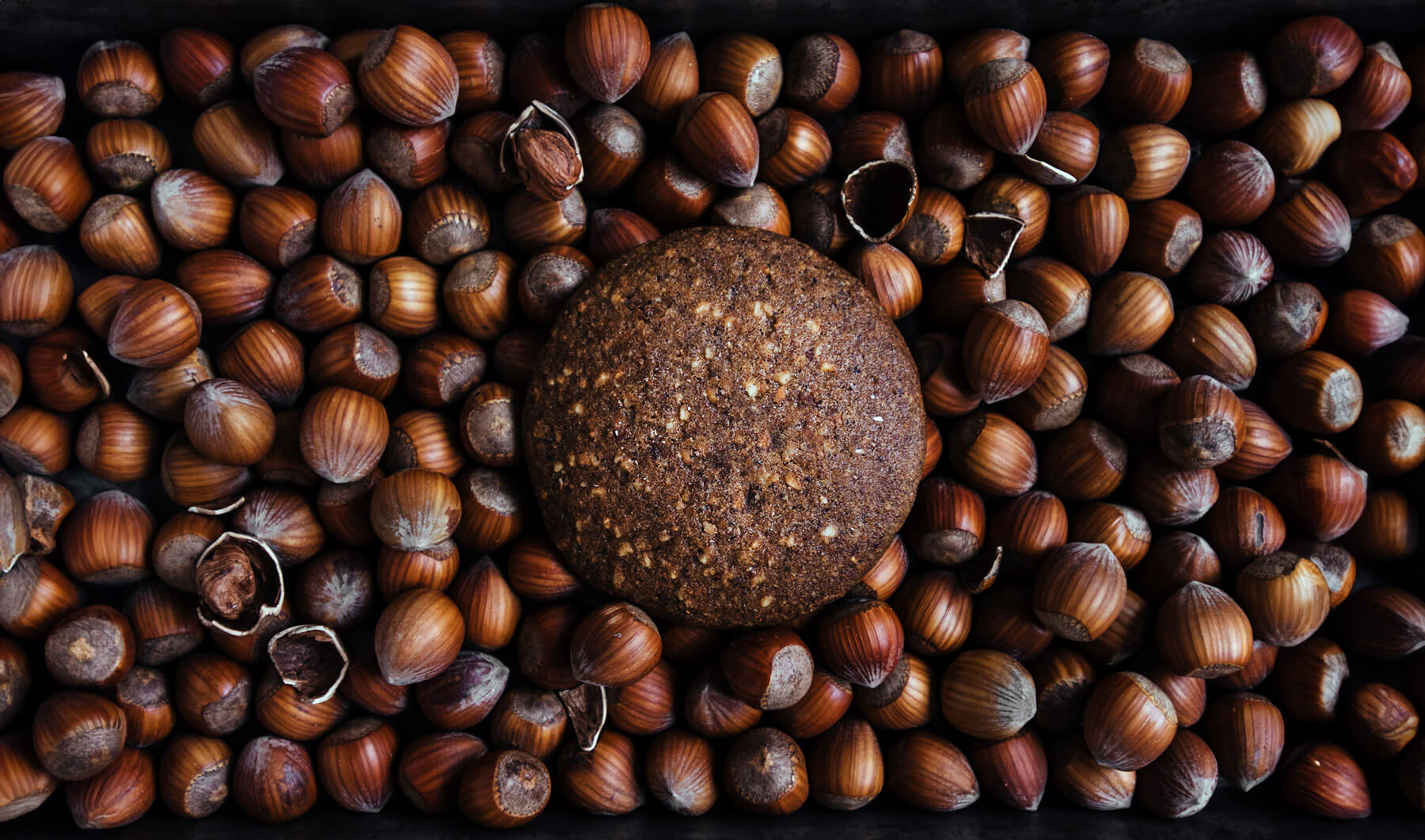Plastic doesn't go in our bags

To keep Elisenlebkuchen fresh throughout the winter, it's usually wrapped in plastic wrap. With an estimated 300 million packages of gingerbread produced in Germany alone each year, that's a huge amount of plastic waste.
When the idea for Pepper & Frost was born, one of our goals was to avoid simply contributing to the food industry's mountain of plastic with our gingerbread packaging . And so, after a few weeks of internet research and discussions with other startups, we discovered the bio-based film that we still use today to keep our gingerbread fresh for as long as possible.
Ce n'est pas un sac plastique!, or: It looks like plastic but it's bioplastic.
Our films look and feel like plastic. This is because they are also made of plastic, but not from mineral oil, but from renewable resources—in our case, cellulose and corn starch.
Their barrier density protects the gingerbread from drying out, while preventing any substances or odors from penetrating the interior and affecting the gingerbread. This keeps it moist and delicious.
How should bioplastics be disposed of?
Our film is certified bio-based and compostable—or at least home compostable. Common sense would say, great, then the film can certainly go in the organic or residual waste, right?
Unfortunately, wrong thought. Under controlled conditions such as temperature, humidity, and time, only water, biomass, and CO2 remain when the film is composted . Unfortunately, the current German waste recycling system is not designed to meet the needs of bioplastics. Organic waste must decompose into soil much more quickly, within six weeks or less. Anything left over after that is incinerated. Therefore, bioplastics generally do not belong in organic waste in Germany.
According to the Federal Environment Agency, all of our bags must be placed in the yellow bag and are then separated in the sorting facilities.
Is bioplastic the solution to all problems?
In principle, less CO2 is released during the production and disposal of plastic made from plants than with conventional petroleum-based plastic, explains the Federal Environment Agency .
Unfortunately, bioplastics aren't the solution to all our problems, and they certainly aren't the answer to the question of how we save the planet. However, by using bio-films, we hope to also invest in the development of plastic alternatives. Because we can't simply accept the fact that more and more mineral oil-based products are being manufactured.



